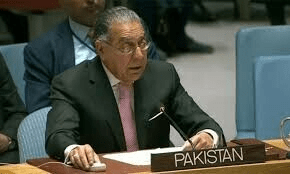ISLAMABAD: Contrary to the government’s claims that poliovirus was restricted to southern Khyber Pakhtunkhwa districts, environmental samples from seven cities have returned positive, indicating the presence of the virus in major urban centres.
The virus was also reported in sewage samples collected from Islamabad and Lahore after a gap of 16 months. Both cities were declared polio-free in March 2021.
An official of the National Institute of Health (NIH), on condition of anonymity, said samples from Islamabad, Lahore, Rawalpindi, Peshawar, Bannu, Nowshera and Swat were found positive.
“Samples were collected from July 18 to 20 and were sent to the polio virology lab for testing,” he said.
Virus found in Islamabad, Lahore after 16-month gap
“Since the virus has again reached Islamabad and Lahore, we should be ready for polio cases from all seven cities, said the official.
In a statement, Minister of National Health Services Abdul Qadir Patel said the government was committed to eradicating the virus and had devised a strategy to achieve its goal.
“We have been taking steps to control the virus in seven cities which have reported positive environmental samples. I appeal to the parents to make sure that their children are vaccinated during every polio campaign,” he said.
The minister also sought cooperation from civil society, religious scholars and media to raise awareness against the virus.
Mr Patel said that since the start of this year, 14 cases of polio have been reported from KP — 13 in North Waziristan and one in Lakki Marwat —and therefore, the government has decided to start a polio campaign in the region from Aug 15.
He said that a country-wide campaign would kick off on Aug 22.
Sewage water samples were collected on a monthly basis from 58 sites across the country under the supervision of provincial health departments and tested by Regional Polio Reference Laboratory housed at the NIH in Islamabad.
If polio virus is found in sewage water, the sample is called ‘positive’. Samples of sewage water from the area are a basic parameter to determine the success of polio campaigns.
Moreover, the presence of virus in sewage also shows that the immunity level of children in the area has fallen and they are at risk of catching the disease.
Published in Dawn, August 3rd, 2022











































